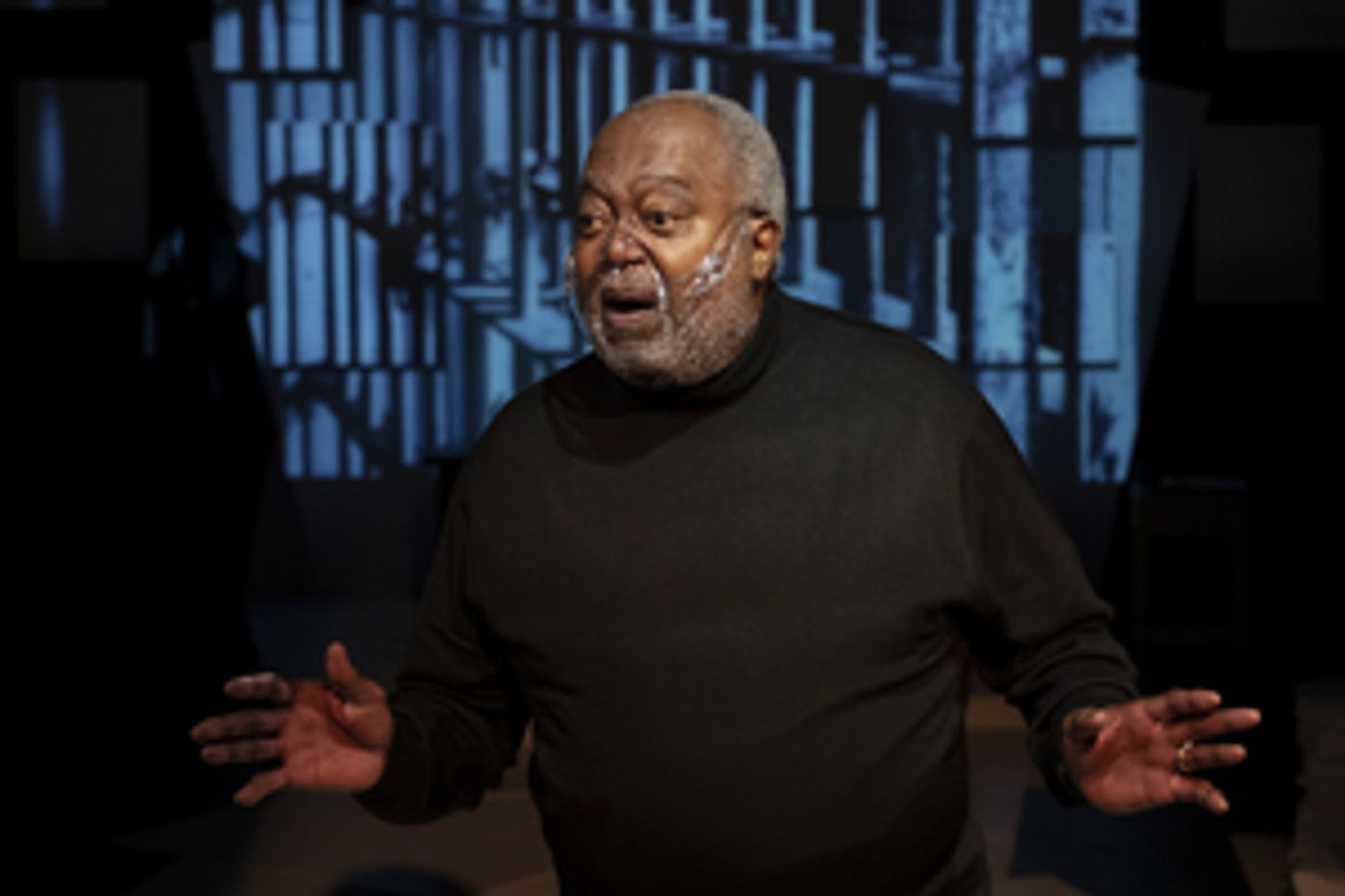Review: HOW I LEARNED WHAT I LEARNED at Avant Bard Theatre
A venerable Virginia judge and actor takes on August Wilson's autobiographical one-man play.

August Wilson was always a font of stories. In addition to the 10 plays of his lauded Pittsburgh Cycle, there were books, essays and poems largely about the African-American experience.
Two years before his death in 2005, he collected several more stories, mostly about his early life in Pittsburgh, in a one man play "How I Learned What I Learned" that he performed himself in its 2003 premiere at the Seattle Theatre.
Now the work is getting a laudable revival at the Avant Bard Theatre in Arlington.
Embodying the feisty late playwright is William T. Newman, a familiar fixture on local stages, whose own life might be worthy a one-man biography as judge on the Arlington Circuit Court since 1993 and Chief Judge of the 17th Judicial Circuit of Virginia since 2003, who was the first African American elected to the Arlington County Board in 1987, where he served as chairman in 1991. Amid all that, he's amassed acting credits that include a role in another Wilson play, "Ma Rainey's black Bottom," "Julius Caesar and "The Winter's Tale" as well as a recurring role in the '70s soap "Somerset" and appearing as a pastor in Lee Daniels' "The Butler."
Now 70 - 10 years older than Wilson was when he died - Newman brings a certain gravitas and wisdom to the role, recalling indelible lessons and burning slights from the playwright's youth as he storms around the stage.
Because it's set in the round, in front of a masked audience, the bellowing Newman adapted his own mask that attempts to maintain optimum expression - a plastic nose and mouth covering that looks more like something you'd see in the sports field.
While it helped viewers connect with his full articulation, the plastic also caught the lights, making it look like an alien illuminated apparatus at times. Other times, it would fog up with his expressed rage. Better to have it, though, than to be exiled to a zoomed production.
Perhaps using his own lessons from the courtroom, Newman expertly walks the stage, designed by Megan Holden, marked with columns of reams of paper, a desk and a stool, making effective eye contact with the audiences to create a bond that few performers are able to achieve even without the masks separating us.
And maybe carrying his own untold history of slights and struggles in his own professional life, Newman rages on with stories that include a number of odd jobs that don't end well (usually with the aggrieved Wilson telling an employer to go to hell), stinging memories of an eviction and humiliating stay in jail, the bait-and-switch of his mother's washing machine prize in a radio contest, the subsequent saving of pennies and nickels to buy their own.
The most memorable yarns are the simplest - the boss who hired him to cut grass but wouldn't stick up for him when a racist woman insisted he get off her lawn; the petty disrespect of a bank teller who first doubted the young playwright was getting a sizable check and then lied about not having an envelope to put it in for him.
Through the play, white audiences may better learn the effects of such daily, grinding microaggressions of racism that clearly still occur.
The stories are divided with titles flashed on one of the screens behind him (they skip the one titled "Oral Sex"), on a series of screens that are part of the marvelous projections by lighting designer John D. Alexander. A large projection of bars comes to illustrate the pervasiveness of jail. At the end, the vindication for Wilson is seen in the titles of all the well known plays with which he'll be remembered decades from now.
Director DeMone Seraphin appeared at play's end to give another congratulations to the actor who is clearly a mentor and inspiration to him. The two men shared a role "Young Oedipus" and "Old Oedipus" in the remarkable 2007 production of "The Gospel at Colonus" and continue that artistic bond (though Newman for his part didn't seem anxious to take another curtain call after an opening night's second of two performances that day).
The story of the Avant Bard theater is one of rebirth as well. The company was expected to close entirely amid the pandemic and the unexpected death of its artistic director Tom Prewitt a year ago, until a group of artists associated with the theater that included DeMone and figured a way to go forward. The other artistic partners are Sara Baker, Megan Behm, Alyssa Sanders and Dina Soltan.
"How I Learned What I Learned" is one the first productions of Avant Bard (formerly known as WSC Avant Bard) in what will be a three-show season. Its message of going forward in the face of adversity and struggle will serve it well as they devise next year's season.
Running time: About 1 hour, 45 minutes.
Photo credit: William T. Newman Jr., in Avant Bard's "How I Learned What I Learned." Photo by Chris Banks.
"How I Learned What I Learned" runs through Dec. 19 at the Gunston Arts Center, Theater Two, 2700 S. Lang St., Arlington VA. Proof of full vaccination or a negative COVID test within 72 hours of attendence is required, as is the wearing of masks. Tickets at 703-418-4808 or online.
Reader Reviews
Videos

